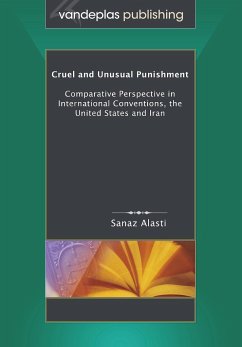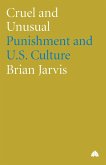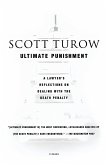Cruel and unusual punishment is one of the most contentious issues in modern times. The condemnation of cruel and unusual punishment is universal. But, what exactly is cruel and unusual punishment? In national and international law the definition of what constitutes cruel and unusual punishment is highly subjective. Almost all countries prohibit inhuman punishments. Countries vary in the extent to which they legally permit what would commonly be considered cruel and degrading punishment or treatment. Most countries absolutely prohibit any form of torture. This book examines which kinds of punishments constitute cruel and unusual, whether these punishments are inherently cruel and unusual, excessive, disproportionate, or unnecessary to society, or inflicted arbitrary. The primary aim of this book is to demonstrate that harshness in the law of punishment such as corporal punishment, long sentences of imprisonment and harshness in the inflexibility of punishment, contradicts with the universal declaration of human rights, and every other law concerning this matter. Another aim of this book is to use a comparative historical approach in illustrating the similarities and differences in cruel and unusual punishments over time and place. In order to achieve this aim, the current practices of harsh punishments in both Iran and United States have been critically reviewed. Through this comparative historical perspective, the reader can gain appreciation of the western and Islamic nature of these punishment practices. About the author: Sanaz Alasti received a S.J.D. (Scientiae Juridicae Doctor) from Golden Gate University School of Law, San Francisco, CA; after obtaining LL.M from Tehran University, and her LL.B with Honors in Tehran, Iran. Dr. Alasti has experience in both criminal justice system of United States and Iran. She has written numerous books and articles on various aspects of Comparative Criminal Justice & Penology. Her most recent books are "Pioneer Criminologists" & "Criminal law and Criminology Dictionary". She has been active in death penalty projects challenging the unfairness and arbitrariness of capital punishment and currently working on: "Teaching Abolition" a project proposing death penalty curriculum to stimulate broader exploration and discussion of capital punishment topics in law schools.
Hinweis: Dieser Artikel kann nur an eine deutsche Lieferadresse ausgeliefert werden.
Hinweis: Dieser Artikel kann nur an eine deutsche Lieferadresse ausgeliefert werden.








